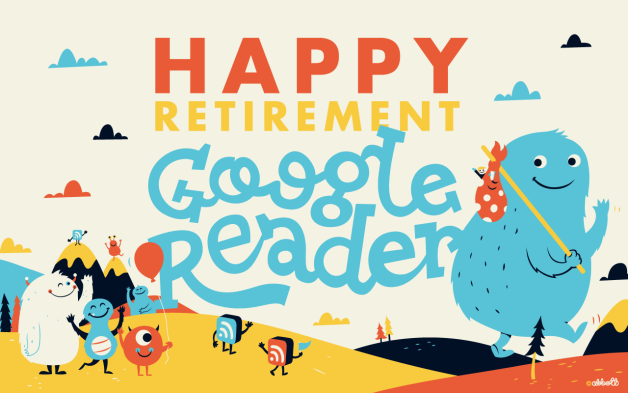Soon after Google’s announcement that they planned to close down Google Reader on July 1, users swarmed to various other web-based RSS services in the hope of finding a suitable alternative that is simple and usable, offers comparable features, and ideally has a mobile interface that plays nicely with its web based counterpart.
The clear leader in the ever-growing pack of contenders is Feedly, who announced that they’d make some major changes to their infrastructure allowing them to scale better as users and their feeds come onboard, building a new service to replace Google Reader:
Feedly cloud is now live, providing a fast and scalable infrastructure to seamlessly replace Google Reader
Over the last week, Feedly’s been putting out a number of playful images like the one above to promote their new services and entice users to migrate to Feedly Cloud.
Migrating your data is as simple as logging into the new Feedly Cloud service with your Google account to migrate your feeds and begin using the service. You can also trigger this migration through Feedly’s Android app, which also – until recently – used Google Reader’s APIs.
[app]com.devhd.feedly[/app]
As you start using Feedly more, you’ll discover a number of apps that work really well with it, including one popular Android app gReader which has moved away from its Google Reader roots and now offers integration with Feedly.
[app]com.noinnion.android.greader.readerpro[/app]
With potentially millions of users who’ll have to abandon Google Reader in the coming week and a half, you shouldn’t leave your migration until the last moment. Access Feedly Cloud to follow the easy migration process.
Feedly isn’t the only service stepping up to fill Google Reader’s shoes, although they seem to have the most mindshare at the moment. Digg has also revealed that it’s building a replacement RSS reader service – you can access their Digg Reader page now and sign up, or read more on their blog.
Are you already using Feedly, or will you move to another Google Reader alternative? Let us know in the comments!



